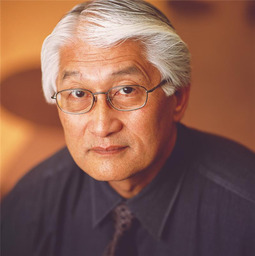One Way to Solve Electricity’s Energy Problem


Electricity has a carbon problem.
Contrary to popular belief, the increasing use of electricity does not mean a reduction in carbon footprint. According to the International Energy Agency, exceptional demands were placed on electricity markets around the world last year. Strong economic growth, combined with colder winters and warmer summers, boosted global electricity demand by more than 6% – the largest increase since the recovery from the financial crisis in 2010.
But the fast rebound in overall energy demand strained supply chains for coal and natural gas, pushing up wholesale electricity prices. Despite the impressive growth of renewable power, electricity generation from coal and gas hit record levels. As a result, the global electricity sector’s annual carbon dioxide emissions leaped to a new all-time high after having decreased for the previous two years.
Unlike other forms of energy, electricity requires energy to generate electricity and most of that energy, about 65% of it, comes from fossil fuels. When we convert transportation systems from fossil fuel to electric systems to help reduce carbon emissions, we may actually increase them by indirectly using more fossil fuels to generate the amount of electricity needed. For now, fossil fuels are still the most efficient forms of energy and the most economical and reliable way to generate electricity.
As we see the increasing effects of climate change due to increasing carbon emissions, we see countries like the U.S. and Canada introduce economic-stimulus packages to fast-track the rapid adoption of renewable energy and establish electricity as the backbone of the North American energy system. These countries have a goal to double electricity consumption and be carbon-free or net-zero by 2050.
Together, with customers and partners, Hitachi is committed to helping accelerated the transition towards a carbon-neutral energy system, as it believes innovation has a massive role to play.
Leading that innovation is digitalization. Digitalization will not only make power grids more flexible, reliable, and efficient, but allow energy organizations to integrate more renewable energy sources. This model relies on real-time, data-driven analytics and automation to make and implement intelligent decisions faster.
Managing the power grid that supports this energy supply requires the combined expertise of both information technology (IT) and operations technology (OT) teams. The lines between IT and OT have blurred over time, and digitalization has accelerated this convergence as data is collected, analyzed, and shared across systems and organizations.
While new technologies are focused on non-fossil fuel systems, fossil fuels have led to a lot of the progress we have made over time. For decades, electricity was only possible because of fossil fuels. Fossil fuels powered the Industrial Revolution and improved the quality of life around the world. Many developing countries still need to rely on fossil fuel for production of economical energy and the reduction of poverty. Hitachi realizes that while the goal is to eliminate fossil fuel systems, these systems will be around for some time.
Therefore, our goal must be to continue to develop innovations with advances in data collection and analysis of power systems and sensor technologies using advanced digitalization platforms, like Hitachi Vantara’s Lumada, to make existing systems as efficient as possible while positioning them to transfer their investments to future zero-carbon emission power systems.
Check out more great stories on Insights.

Hu Yoshida spent 24 years at Hitachi Vantara helping define technical direction and enabling customers to address their digital transformation needs. He is widely known in the industry and was instrumental in evangelizing Hitachi's unique approach to storage virtualization.